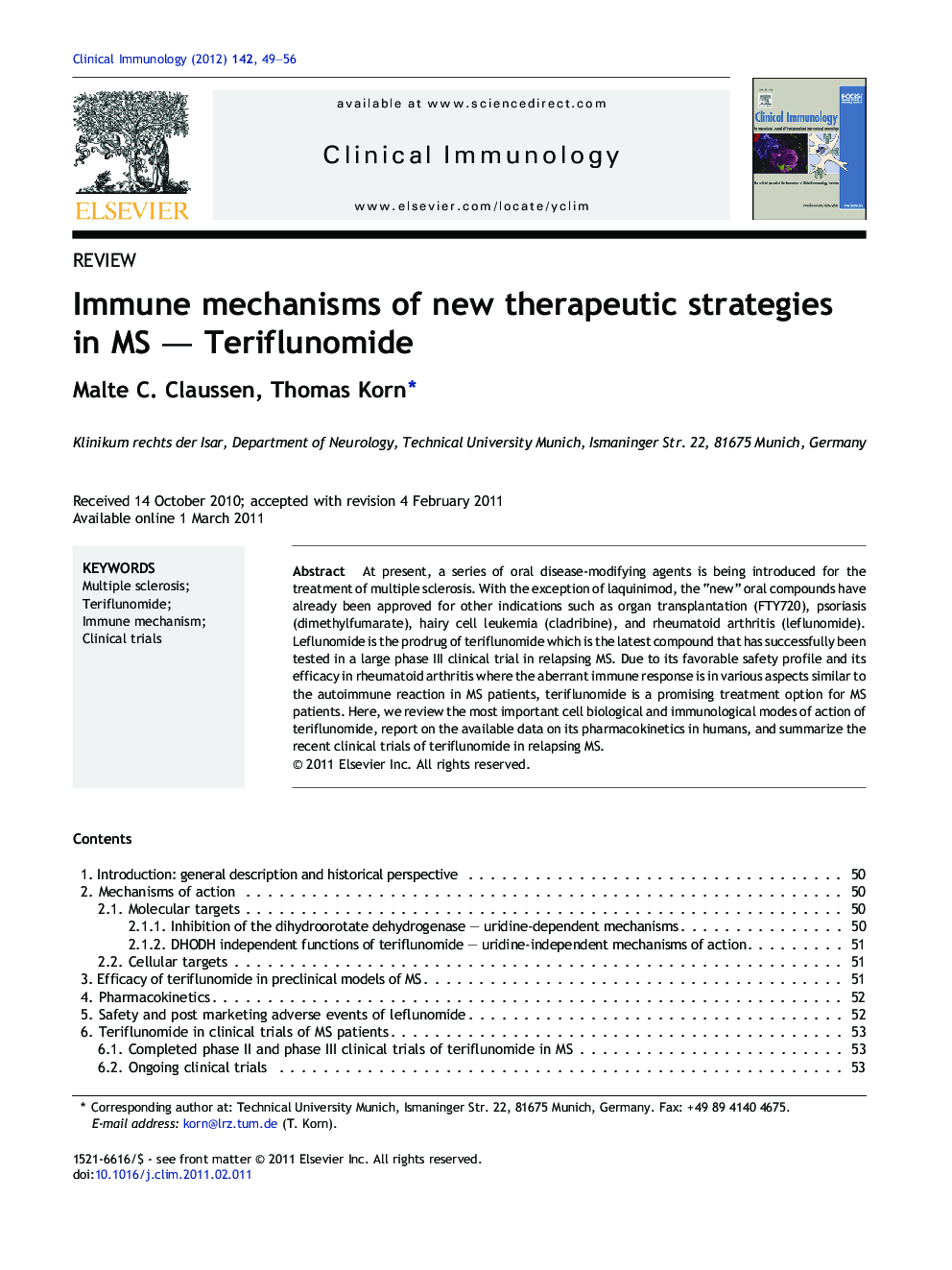| Article ID | Journal | Published Year | Pages | File Type |
|---|---|---|---|---|
| 3257083 | Clinical Immunology | 2012 | 8 Pages |
At present, a series of oral disease-modifying agents is being introduced for the treatment of multiple sclerosis. With the exception of laquinimod, the “new” oral compounds have already been approved for other indications such as organ transplantation (FTY720), psoriasis (dimethylfumarate), hairy cell leukemia (cladribine), and rheumatoid arthritis (leflunomide). Leflunomide is the prodrug of teriflunomide which is the latest compound that has successfully been tested in a large phase III clinical trial in relapsing MS. Due to its favorable safety profile and its efficacy in rheumatoid arthritis where the aberrant immune response is in various aspects similar to the autoimmune reaction in MS patients, teriflunomide is a promising treatment option for MS patients. Here, we review the most important cell biological and immunological modes of action of teriflunomide, report on the available data on its pharmacokinetics in humans, and summarize the recent clinical trials of teriflunomide in relapsing MS.
